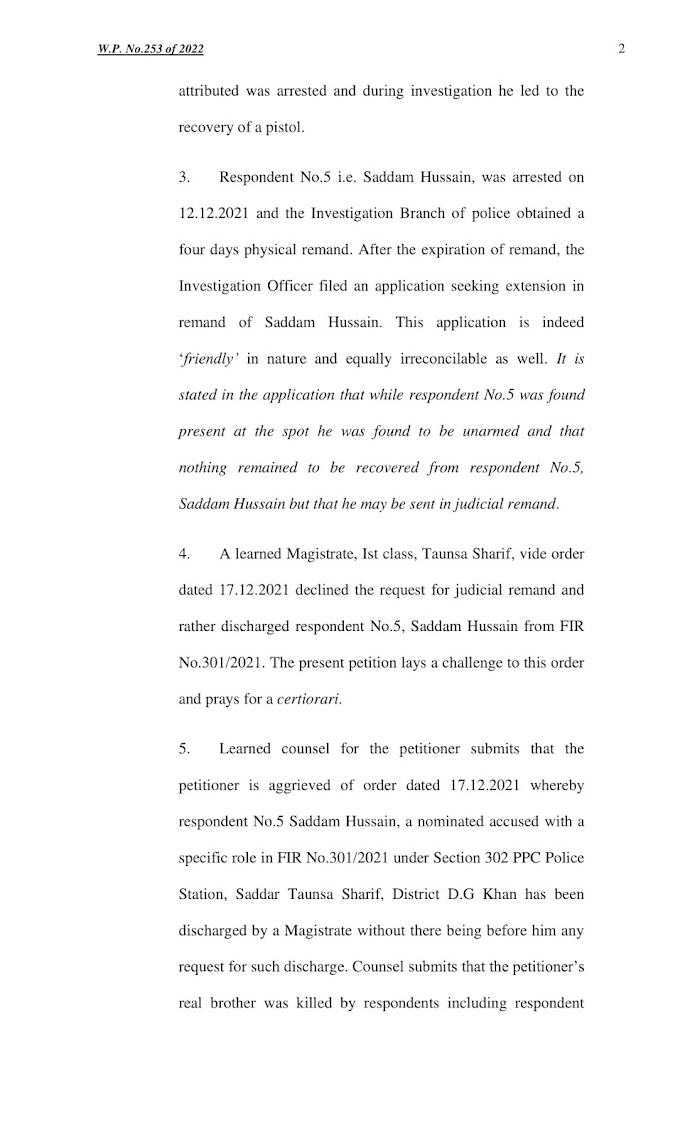The Criminal Procedure Code, 1908 empowers Magistrates to discharge an accused at two stages after an FIR is lodged; First, through Section 63 of Cr.P.C. during the course of an investigation and then by means of Section 173(3), after investigation by the Police results in a final report to be submitted in terms of Section 173(1).
CAN THE ACCUSED BE DISCHARGED UNDER SECTION 63 WHEN APPLICATION FOR REMAND IS FILED UNDER SECTION 167:
.........................
Magistrate can even discharge an accused at the stage when such accused is produced for the grant of physical remand.
WHEN SHOULD A DISCHARGE ORDER BE PASSED:
..................
It is only when the circumstances of the case viewed with the evidence available obviously dispel the involvement of an accused in the commission of an alleged offence that a magistrate is empowered to discharge the accused and the order of a Magistrate must pass the test of a speaking, reasoned and judicial order which must show application of judicial mind upon the facts of the case, shed light on the extent of investigation conducted in the matter, evidence collected and the probability of incrimination of accused on the basis of present or prospective investigation.

























0 Comments